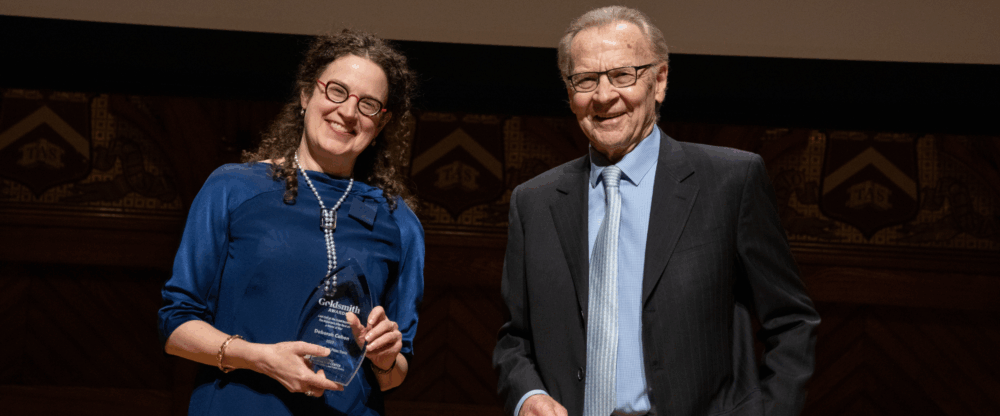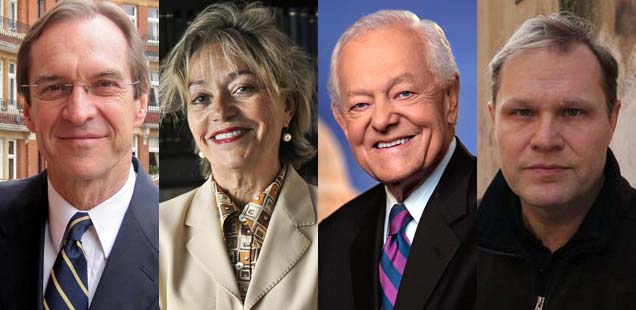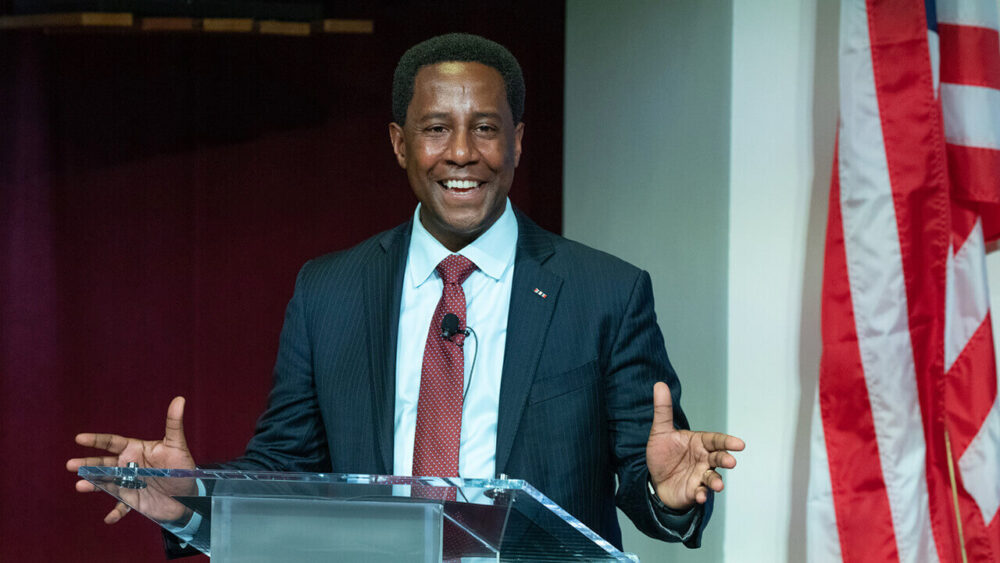
Nominations open for the 2026 Goldsmith Awards
Newsletter

Our weekly roundup of news found at the intersection of media, politics, policy and technology, from the Shorenstein Center and from around the web.
Shorenstein Center Announces Fall 2015 Fellows. We welcome distinguished leaders in political and international reporting who will join us in September: Bob Schieffer, CBS reporter for 46 years and host of “Face the Nation”; David Ensor, former director of Voice of America; Marie Sanz, bureau chief of Agence France Presse; and Paul Wood, BBC foreign correspondent.
#Tech4Democracy Showcase and Challenge: Call for Presenters. The Ash Center and the Shorenstein Center are excited to host the #Tech4Democracy Showcase and Challenge as part of HUBweek. Presenters will have the opportunity to showcase an idea for a new app, web platform, policy, or program that leverages technology to improve the quality of democratic governance. Winners will receive a $5,000 award. Apply by September 27. Learn more and apply.
What Does the Research Say? Harvard Kennedy School Magazine tells the story of the founding and growth of the Shorenstein Center’s Journalist’s Resource website, and the role the site plays in helping journalists make their reporting more accurate and trustworthy through the use of current research.
Democracy, Voting and Public Opinion in the Arab World: New Research Evidence, from Journalist’s Resource.
Why Political Journalists Shouldn’t Report on Internal Polling. Thomas Patterson, acting director of the Shorenstein Center and Bradlee Professor of Government and the Press, was quoted in a Columbia Journalism Review article about the pitfalls of relying on polling numbers provided by campaigns. “Internal polling is ‘being reported more often because it’s really easy journalism,’ said Patterson. ‘In this environment when people are trying to crank out a lot of stuff, sometimes they do it. It’s almost always unfortunate.’”
Fukushima: The Price of Nuclear Power. Michael Ignatieff, Edward R. Murrow Professor of Press, Politics and Public Policy, writes about his tour of Namie, Japan, a town that is still uninhabitable four years after the Fukushima disaster – and asks whether this is a price worth paying for nuclear energy.
How News Outlets Factchecked the U.S. Chamber’s Flawed Clean Power Plan Numbers. The Union of Concerned Scientists referenced a paper written by Eric Pooley (Kalb Fellow, fall 2008), which provides methodology for reporting on suspect economic claims. Pooley is currently senior vice president for strategy and communications at the Environmental Defense Fund. Read his full paper, How Much Would You Pay to Save the Planet? The American Press and the Economics of Climate Change.
Media Groups Deride White House on Information Curbs, Monitoring, from Poynter.
New York Times Editorial Board: Pentagon Guidelines “Would Do Severe Damage to Press Freedoms,” from Politico Media.
Jesse Holcomb of Pew Research on What They’re Watching for in This Election Cycle, from Nieman Lab.
The New York Times Liveblogged Last Night’s GOP Debate Directly from Slack, from Nieman Lab.
How Mic Crowdsourced Questions for its First Presidential Interview, from Poynter.
New Journalism Venture Digs Deep to Explore Policymaking in California, from the Knight Foundation.
The Dangerous Game of Reporting on Government Spying Operations, from Columbia Journalism Review.
How Ferguson and #BlackLivesMatter Taught Us Not to Look Away, from The Conversation.
Glamour Launches Election Vertical for Young Women Voters, from Politico Media.


Center News

Center News